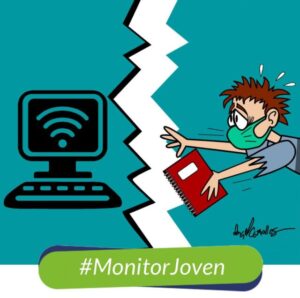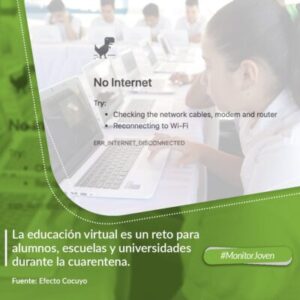Organizations propose project to measure conditions of access to education
The University Network for Human Rights and the A.C. Development and Justice Consortium also seek to know the vulnerabilities that young people face in order to be able to educate themselves at a university
The University Network for Human Rights, together with the A.C. Development and Justice Consortium, promoted the initiative to create the #MonitorJoven project, which monitors the conditions and vulnerabilities that young people experience in order to access university education.
At the moment, the attention is focused on the States Capital District, Mérida, Táchira, Aragua, Carabobo and Miranda, with the aim of accompanying and promoting the increase of the potentialities that allow the empowerment of young people, all this in the frame of the defense of human rights and the promotion of democracy to strengthen peaceful youth activism.

Due to the coronavirus pandemic, various governments of the world and international organizations adopted the virtual education measure, along with orders for confinement and social distancing to prevent the increase in cases of COVID-19.
However, the Young Youth research coordinator, Evelyn Pinto, stated that “the Venezuelan educational system already had infrastructure, content and human resource failures, coupled with the complex humanitarian emergency that Venezuela is going through, the constant power cuts and the deficiencies in internet services, facts that make the transition to virtual education more complex”.
In this sense, at the end of April the third #MonitorJoven newsletter was published, under the title “Virtualization of education in Venezuela, an exclusive reality”, in which it is stated that, in the country, the virtual educational panorama is affected by the deficiency of public services necessary for the development of this academic format.
In the bulletin, the experts in the technological area: Luis Carlos Díaz, specialist in digital communication, and the vice president of the Internet Society Venezuela Chapter (ISOC), Andrés Azpúrua, offered their impressions and recommendations to carry out the transition to virtual education in the country.
For Luis Carlos Díaz, talking about the virtualization of education in Venezuela requires “experts in pedagogy and online pedagogy, something that the Ministry of Education does not have at the moment and a matter that is completely ignored by who is in charge of that entity ”.
Source: Doble Llave


